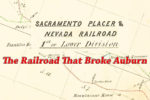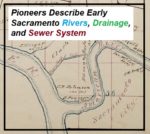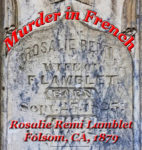On January 3, 1857, Dr. Bates authorized the payment of $124,000 to Edwin Rowe of the Pacific Express Company for interest due in New York on July 1st. In sworn testimony, Dr. Bates confesses there was no Controller’s warrant for the disbursement. Dr. Bates left the Treasurer’s office at 1:30 PM while Rowe took charge of the gold coins. Dr. Bates told the clerk to drop the key to the safe at his hotel room later that evening. The clerk, Mr. Bunker, left the office at 3:30 PM while Rowe was still in the office counting the money.











